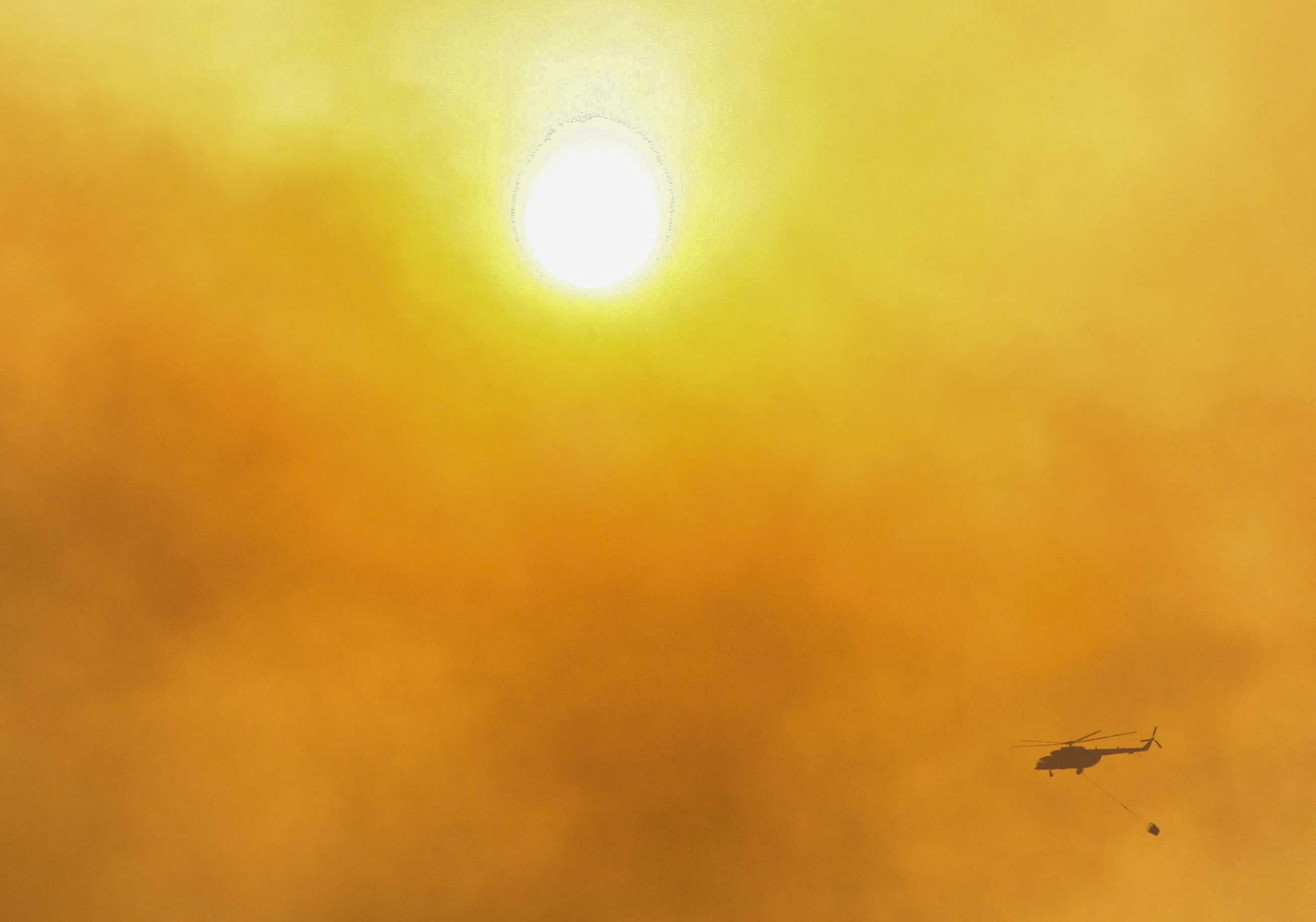Cyprus has taken delivery of two helicopters to support wildfire response efforts, as part of the defence ministry’s preparations for the summer fire season.
The aircraft were received under a leasing agreement signed with a private contractor, defence ministry spokesman Christos Pieris confirmed on Monday. The lease provides immediate reinforcement of the country’s aerial firefighting capacity.
The agreement is temporary and will be renewed every month, Pieris said. This arrangement will remain in place until the government’s tendering process for new aircraft, currently being handled by the treasury, is completed.
The ministry expects to receive two more helicopters within the next ten days. These additions will help meet the operational target of maintaining a fleet of 11 fully equipped firefighting aircraft during the high-risk fire period.
To quickly support local fire brigades, throughout July and August, almost 650 firefighters from 14 European countries will be strategically positioned in key high-risk locations in France, Greece, Portugal and Spain. They will boost the number of firefighters in each country.
In addition, 22 firefighting airplanes and four helicopters will be stationed in ten member states to intervene in case of need. Coordinated and co-financed via the EU Civil Protection Mechanism, these resources will help mitigate risks and enable a faster and more robust crisis response. These assets come on top of national capacities.
Under the EU-supported summer fleet programme, France has been allocated four medium amphibious airplanes and one helicopter, Greece four medium amphibious airplanes, Croatia, Italy and Spain two medium amphibious airplanes each, Sweden four light planes, Portugal and Cyprus two light planes each, Czechia two helicopters and Slovakia one helicopter.
In addition, a further 19 ground firefighting teams, of around 30 firefighters each, and one advisory and assessment team, are ready to be mobilised by the EU in close collaboration with member and participating states via the mechanism.
A dedicated wildfire support team will be established at the EU’s 24/7 Emergency Response Coordination Centre to monitor risks and analyse scientific data.
“This proactive approach confirms the EU’s commitment to staying one step ahead of disasters, including those worsened by climate change, and to joining forces to protect lives, homes and the environment,” the Commission said.
It added that wildfire prevention, preparedness and response go hand in hand to save lives, protect livelihoods and safeguard the environment. Having experienced wildfire experts, well-trained firefighters, effective information technology and various response assets at hand makes a real difference.
The Commission explained that any country in the world affected by wildfires can request assistance through the EU Civil Protection Mechanism (UCPM). Once activated, the EU’s 24/7 Emergency Response Coordination Centre coordinates and co-finances the delivery of assistance, offered voluntarily by EU member states and ten additional UCPM participating states (Iceland, Norway, Serbia, North Macedonia, Montenegro, Turkey, Bosnia and Herzegovina, Albania, Moldova and Ukraine).
In addition, the EU has created the European Civil Protection Pool (ECPP) to ensure a critical number of readily available civil protection capacities, allowing for a stronger, faster and more coherent collective response to disasters.
It brings together resources from 27 member states and ten UCPM participating states, ready for deployment to disaster zones at short notice. These resources may include firefighting teams, experts, or specialised equipment.
The ECPP operates on voluntary contributions, which are then assessed and certified by the EU. The final decision to deploy these assets remains with the contributing countries.
Should an emergency require additional life-saving assistance, the EU’s own strategic reserve, rescEU, can step in to provide extra resources to respond to disasters affecting Europeans. It includes a fleet of firefighting aircraft, medical evacuation airplanes, a stockpile of medical items and field hospitals, and more.
rescEU operates by providing grants to member states to acquire these capacities, with the European Commission holding the final decision on their deployment.
The EU’s Emergency Response Coordination Centre also monitors the development of wildfires with the support of early warning systems such as the European Forest Fire Information System, while the EU’s Copernicus emergency satellite mapping service complements operations with detailed information from space.







Click here to change your cookie preferences